Author Interview: Tian Xu
Today we share an interview with Tian Xu, who published an article in the December 2023 JCWE, titled “Chinese Women and Habeas Corpus Hearings in California.” Tian Xu is a postdoctoral fellow at SUNY Buffalo’s Baldy Center for Law and Social Policy. His work has been published in Journal of ...
Read More
Read More
Author Interview: Beth Lew-Williams
Today we share an interview with Beth Lew-Williams, who published an article in the December 2023 JCWE, titled “Chinese Naturalization, Voting, and Other Impossible Acts.” Beth Lew-Williams is an associate professor of history at Princeton University. She is a historian of race and migration in the United States, specializing in Asian ...
Read More
Read More

Congratulations to the 2023 Anne Braden Prize Winner
The Southern Historical Association is delighted to announce the winner of the Anne Braden Prize: Kimberly Welch, “The Stability of Fortunes: A Free Black Woman, Her Legacy, and the Legal Archive in Antebellum New Orleans,” JOURNAL OF THE CIVIL WAR ERA 12 (December 2022): 473-502. This prize, which was first ...
Read More
Read More

Announcing the 2023 George and Ann Richards Prize for Best Article
Kimberly Welch's article "The Stability of Fortunes: A Free Black Woman, Her Legacy, and the Legal Archive in Antebellum New Orleans" has been chosen as the recipient of the George and Ann Richards Prize for best article published in The Journal of the Civil War Era by a prize committee drawn ...
Read More
Read More
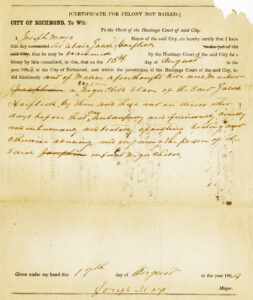
Imperfect Justice in the Imperfect Archive: Uncovering Extrajudicial Black Resistance in Richmond’s Civil War Court Records
As the guest editors and article authors of the December 2022 JCWE special issue, "Archives and Nineteenth-Century African American History" demonstrate, there is no perfect archive. Historians must therefore read every imperfect archive with a particular perspicacity, to uncover the histories so many archives were meant to suppress or erase.[1] ...
Read More
Read More
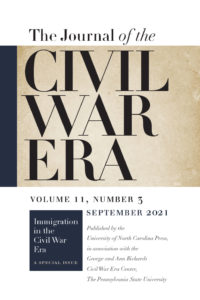
Previewing September 2021 Issue: Immigration in the Civil War Era
While recent immigration scholars have turned most of their attention to the twentieth century, many historians are also reexamining immigration policy in the mid-nineteenth century. Alison Clark Efford, in a recent review essay in this journal, reflects on how nineteenth-century immigration historiography is marked by an “imperial framework in which the ...
Read More
Read More
Editors’ Note: March 2020 Issue
Cracks in the Foundation: The Fourteenth Amendment and Its Limits In March 2018, we convened a conference titled “The Many Fourteenth Amendments” at the University of Miami. The timing was propitious. Not only did 2018 mark the sesquicentennial anniversary of the amendment’s ratification but also the issues that would come ...
Read More
Read More
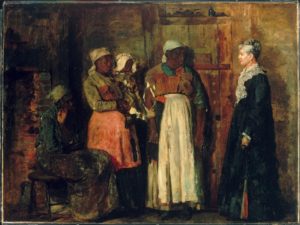
Putting Women Back Where They Belong: In Federalism and the U.S. History Survey
To say that women do not figure prominently in the historiography of federalism is an understatement, to say the least. What could debates about the relationship between states and the federal government possibly have to do with women, particularly before the Civil War, when they lacked the rights necessary to ...
Read More
Read More
Editor’s Note: December 2018 Issue
We are pleased to present the editor's note for our December 2018 issue, chock full of fascinating articles. To subscribe, please visit our subscriptions page. This issue features essays on the political and social contexts of the sectional crisis, looking carefully at what Americans read and how they voted—and for ...
Read More
Read More
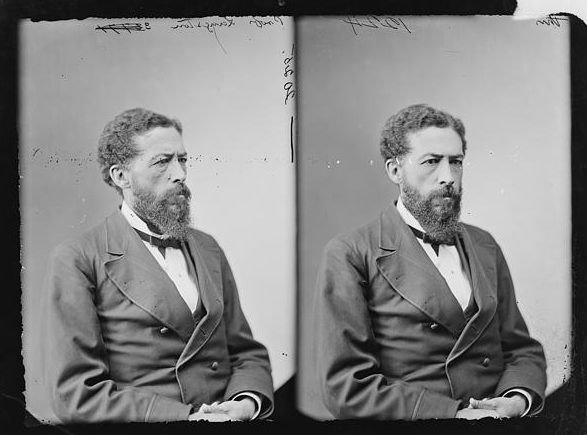
Spatial Roots, Lawsuits, and Leisurely Pursuits: A SHA 2018 Recap
Morning panels on the last day of conferences can be difficult. But a Sunday morning panel at the SHA 2018 Annual Meeting offered refreshing perspectives on Reconstruction Studies scholarship. The three panelists of “Emancipationist Memory and Radical Dreams of Freedom: New Directions in African American History of the Reconstruction Era” ...
Read More
Read More
The Contested Meanings of the Fourteenth Amendment
This weekend, we share the guest editor's conclusion to our roundtable on the Fourteenth Amendment. Earlier contributions can be found in order here, here, here, here, and here. Thank you for following along with us as we reevaluated and commemorated the amendment's 150th anniversary. Last Sunday, I gave a public ...
Read More
Read More
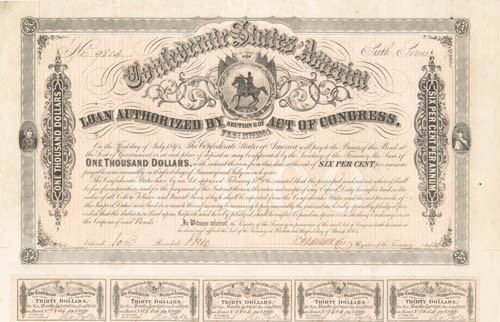
The Fourteenth Amendment’s “Other” Sections
Here we provide the penultimate contribution to our Fourteenth Amendment roundtable. Previous selections from this roundtable can be found here, here, here, and here. Our guest editor Martha S. Jones's conclusion is available here. For a Constitutional Amendment that undergirds so much of modern American jurisprudence, there may be ...
Read More
Read More
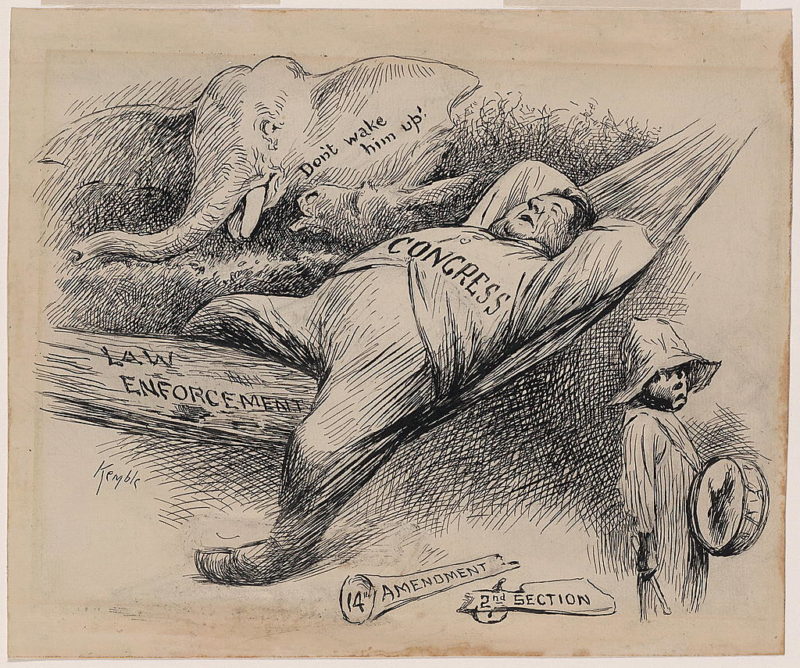
Erasing Dred Scott’s Shadow
Today we are publishing Hilary Green's contribution to our Fourteenth Amendment roundtable. Previous contributions to this roundtable can be found here, here, and here. The final post and conclusion can be found here and here. Amid the chaos of the current political moment, the July 9, 2018, sesquicentennial anniversary ...
Read More
Read More
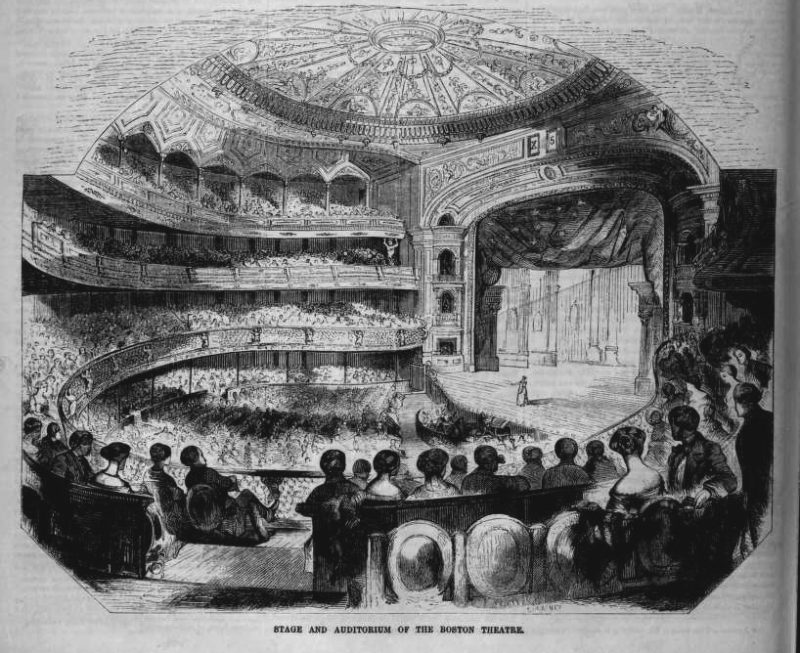
“Starbucks is Not Just a Place To Buy a Cup of Coffee”: Race and the Boundaries of Urban Public Life
When Rashon Nelson and Donte Robinson, two young African American entrepreneurs, entered a Starbucks coffee shop on April 12, 2018, for a business meeting in downtown Philadelphia, neither expected to be caught in the boundary between urban public and private space. The two men arrived at the café and awaited ...
Read More
Read More
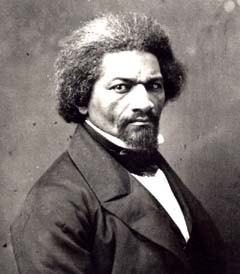
Legal History’s Debt to Frederick Douglass
Marking his 200th birthday this week, I want to acknowledge the debt legal historians owe to Frederick Douglass. When Chief Justice Roger Taney denied that free black Americans were citizens of the United States in the 1857 Dred Scott decision, Douglass immediately opposed him. Then, across his lifetime, Douglass never forget ...
Read More
Read More
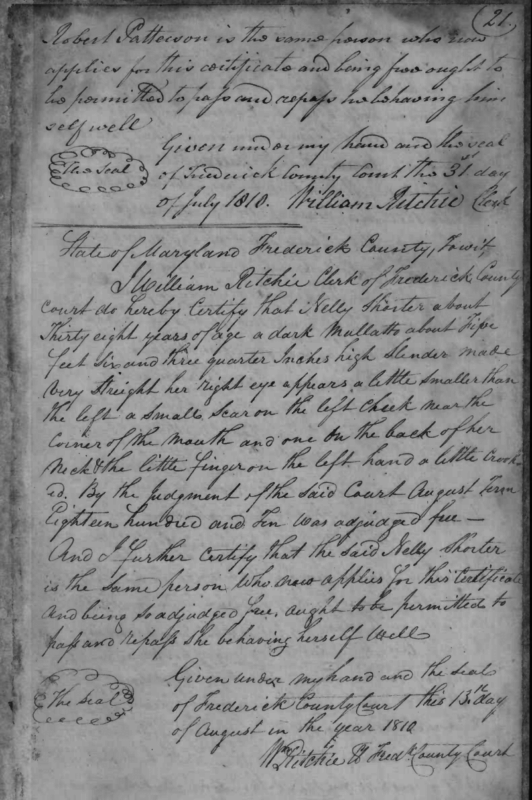
The Blood Is in the Details: When Scars of Slavery Are Markers of Freedom
On this first day of December, we share our first Field Dispatch from Martha S. Jones, the Society of Black Alumni Presidential Professor and Professor of History at Johns Hopkins University. Her most recent work is Birthright Citizens: A History of Race and Rights in Antebellum America, forthcoming in 2018 from ...
Read More
Read More
